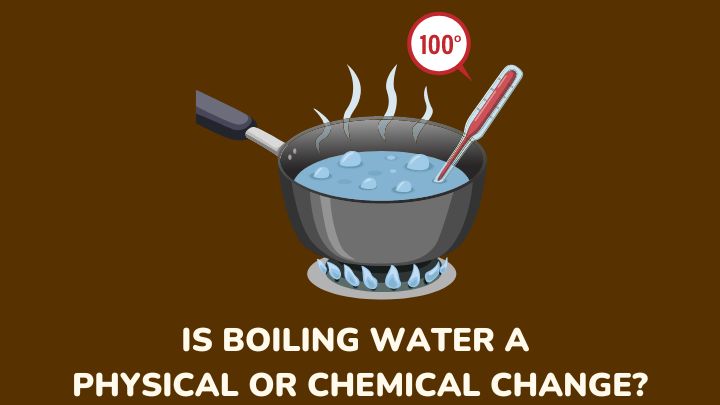Is boiling water a physical or chemical change?
Boiling water is an everyday process. You boil water to make breakfast cereal, as the first step in your recipe, for bathing, and to wash. The process of boiling shifts water from one phase to another. Yes! A lot that you cannot see goes on in the water.
Boiling is the process of heating a liquid to its boiling point, where it becomes vapor. Water, as matter, changes. These changes can be classified under physical and chemical, reversible and irreversible, and slow and fast change.
In this article, you will learn which type of change best describes the process of boiling water.
Is boiling water a physical or chemical change?
The process of boiling water does not change the H2O molecules. Therefore, it is a physical change. Moreover, it is a reversible process. That is, the vapor can be condensed and cooled back into water.
What are the differences between physical and chemical changes?
Physical change is a process that affects only the physical composition and properties of a substance.
Conversely, chemical change affects both the physical and chemical composition of the substance.
Furthermore, physical changes are reversible, unlike irreversible chemical changes. Since physical changes do not affect the chemical composition of the substance, there is no formation of new substances.
On the other hand, chemical changes affect both physical and chemical composition so it leads to the formation of new substances.
In addition, while physical changes may or may not require the release or consumption of energy, chemical changes require the production of energy before they take place.
Some examples of physical change are boiling water, freezing, evaporation, cutting papers, slicing bread, dissolving milk or sugar in water, breaking glass, chopping wood, breaking an egg, chopping veggies, and crushing an empty milk carton.
Examples of chemical change include boiling eggs, frying eggs, rusting, ripening, baking, burning paper or wood, digestion, souring of milk, rotting, mixing acid and base, combustion, tarnishing of silver, and photosynthesis.
What type of reaction is boiling water?
Boiling water is an endothermic reaction. Water does not come to a boil at room temperature.
Following the definition of reactions based on heat transfer, endothermic reactions absorb heat from the environment before they take place. To boil water, you must apply heat.
What are the factors that affect boiling point?
Boiling depends on the temperature applied, the atmospheric pressure, and the vapor pressure of the liquid. When the temperature is right and atmospheric pressure equals vapor pressure, boiling will take place.
FAQs
Is freezing a physical or chemical change?
Just like boiling and evaporation, freezing is a physical change. The physical appearance of water changes in any of these processes but it remains the water molecule, H2O.
Is a change of phase a physical or chemical change?
A phase change is a physical change. A phase change is a process by which a substance moves from one state of matter to another.
What is the difference between boiling and evaporation?
Boiling is a whereby liquids vapourize at a constant temperature known as the boiling point. On the other hand, evaporation is a process whereby liquids vaporize at room temperature.
Another difference you should note is the speed and distribution of temperature. Evaporation is a slow process which occurs only at the surface. In contrast, boiling is fast and occurs throughout the liquid, producing lots of bubbles. Also, while evaporation results in cooling, boiling does not.
Conclusion
So, there you have it. Boiling water is a physical change. Boiling transforms water into vapor but does not change the water molecules. Water as a liquid is H2O, and water as vapor remains H2O. Also, it is a reversible reaction.
Under certain conditions, vapor will condense back to liquid water. One easy way to remember the type of change that best describes the process boiling water undergoes is a reversible reaction because its molecules remain unchanged.
Now, you understand the difference between physical and chemical changes. You should also learn about the differences between physical and chemical properties of matter and the relationship they have with physical and chemical changes.
Thanks for reading.
